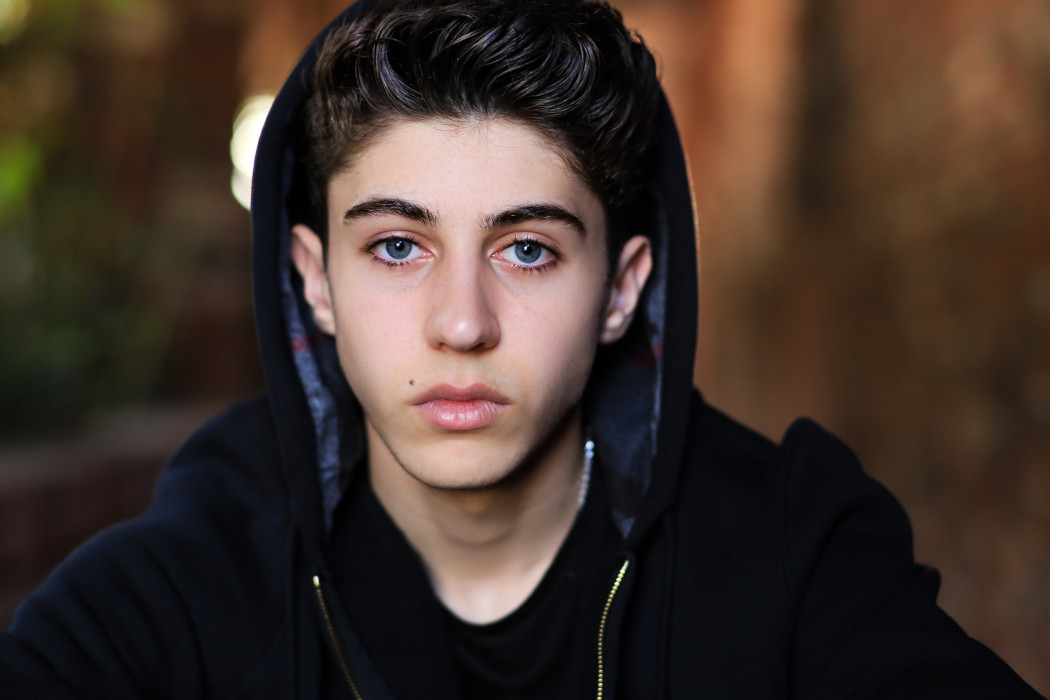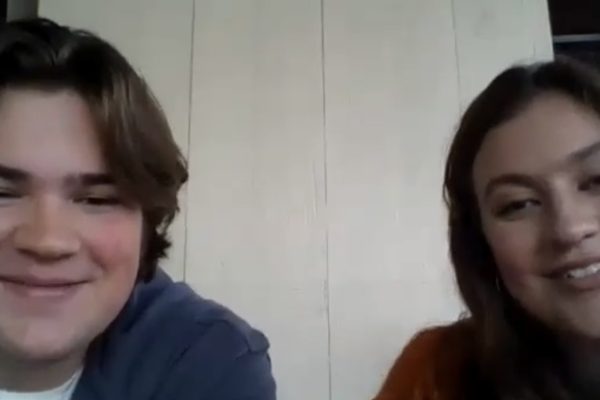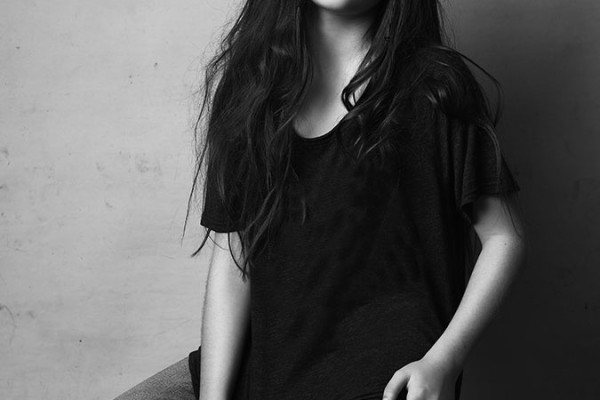If you are being abused, please call 1800 4-A-Child (or 1800-422-4453)
Looking at childhood depicted in media can often be bittersweet. It’s one of the last few genres where viewers can usually assume that there will be a happy ending. And while there’s no such thing as a “normal childhood” through a cultural and societal standpoint, there are certain connotations for what is considered normal. But furthermore, there are necessities and aspects that every child needs and deserves the right to in order to grow up happy and healthy mentally, emotionally, socially, and physically. And while often the case in childhood depicted in media focuses on this by having a bully outside of the house, rarely does it focus on what it’s like to be an adolescent where the person who is tormenting you is inside it with manipulative enough to have full authority over you.
Co-written and directed by Santiago Rizzo, Quest is loosely based on his life. Gregory Kayan plays Mills, a 12-year-old graffiti artist who catches the attention of middle school teacher and football coach Tim Moellering (Dash Mihok) when he acts out due to being abused at home by his stepfather (Lou Diamond Philips). The film is years in the making with Rizzo being inspired to finish making the film in its final form after the death of the real Tim Moellering who played a significant role in Rizzo’s life of helping him build trust and security by being a support system in his life.
Taking a break from helping promote the film at festivals like Sundance, Gregory and I get on the phone one January evening to discuss playing the character, the film’s subject matter, his co-star Lakeith Stanfield, and the significance of art in this film.
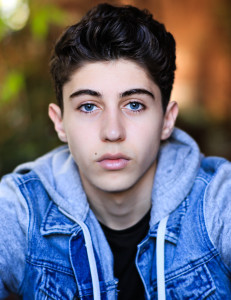 “When I first heard about Mills, I was really excited,” Gregory begins when asked about the role. Shooting the film around three or four years ago when he was 12/13, the role of Mills drew him in because of the content around the character. “Just auditioning for it at that age, I was usually going out for like Nickelodeon or Disney—which I don’t mind. But, I was always interested in gritty roles that were three dimensional and had a lot of layers to them.”
“When I first heard about Mills, I was really excited,” Gregory begins when asked about the role. Shooting the film around three or four years ago when he was 12/13, the role of Mills drew him in because of the content around the character. “Just auditioning for it at that age, I was usually going out for like Nickelodeon or Disney—which I don’t mind. But, I was always interested in gritty roles that were three dimensional and had a lot of layers to them.”
Mills lives in a broken home with his mother and an abusive stepdad and as a result, he struggles with trusting authority. “He’s always in the streets and he’s always getting himself into trouble so he’s [considered] a ‘trouble youth.’” Gregory explains that Mills acts out and gets into trouble because of his stepdad’s actions and the lack of love he receives at home because of him. “What ends up happening is his football coach/history teacher kinda takes him into his family and shows him how to love and trust,” he says hinting at an inner conflict throughout the film that intervenes.
Suffering from abuse and needing a way to cope/deal with the feelings he represses, Mills carries a bad temper, “He had some hot buttons and he could snap like really randomly. So those hot buttons were stuff that I had to kind of relate to and make it my own.” In order to portray this in a way that didn’t make viewers just see him as a one dimensional mean and angry youth, Gregory had to develop a way of talking and communicating in character to show depth underneath his behavior.
Having Santiago Rizzo on set was helpful for Gregory to get a better understanding of the character, “He gave me a lot of insight and he’s actually Mills in real life. He’s obviously older now but he gave me a lot of insight into the character and why he was acting the way he was acting.” Gregory also looked to his dad for a better understanding on Mills who he says went through a similar situation, “They both gave me a lot of insight on how to prepare and what the psychology of the character was.”
I think it’s really important for people to take care of youth and look into youth and help troubled youth because they are our future generation.
“I felt like there was a necessity of a story that I did have to tell because I had to play this role I felt like and I wanted to obviously,” Gregory explains how having his dad and Rizzo there and knowing so many people who this story would relate to also influenced and motivated him throughout shooting. “It was something that I felt like I needed to do because there’s a lot of troubled youth out there and there’s a lot of stuff going on with youth. I think it’s really important for people to take care of youth and look into youth and help troubled youth because they are our future generation. So it was kind of like, I had to tell the story of this kid.”
Filming Quest about 3/4 years ago when he was twelve or thirteen, Gregory has gotten to take a step back from the film and look at it from a new perspective of growth. Even though he understood the seriousness of the situation and what Quest was about then, seeing the film now he explains that he was completely blown away by it. “I never did really judge anybody but if I had a first impression on somebody or a bad first impression which I usually never do—but if I see someone that’s troubled or aggressive or very emotional about things, there has to be something else behind it, you know?” Gregory further explains that Quest shows the importance of having compassion and reaching out, “I really took that away; that you have to be kind to everybody because you don’t know what struggles they’re going through, you don’t know what pain they’ve been through, you don’t know what’s causing them to do the things that they’re doing.”
As for what others watching the film may take away, it depends on who is watching. “Everyone watching it will take away something. For instance, youth watching the film might think to themselves whatever trouble or pain they’re having in their life, they’re going to be okay and there’s always a way out instead of ending up on the streets or doing bad things and committing crimes. And for adults, I think when they watch it, they’ll be able to relate and to express and to vent out because they might’ve had a troubled youth and they can realize they have the power and the voice and they’re able to take action into helping the youth,” Gregory hopes.
You have to be kind to everybody because you don’t know what struggles they’re going through, you don’t know what pain they’ve been through, you don’t know what’s causing them to do the things that they’re doing.
“If I could give Mills some advice I would tell him that it’s not his fault for what he’s going through and that it’s going to get better.” Looking at Mills and what he along with other people experiencing abuse at home goes through, Gregory shares the importance of the reaching out to potential (and hopeful) support systems, “The best way to vent everything out is to find an adult that he trusts like his teacher in the film and vent out and find a way to get through it. And to not get into the street and drugs and violence and crime. There are other paths and ways out of trouble.”
Besides Tim Moellering, Mills also receives support from his graffiti partner/mentor Diego played be Lakeith Stanfield. “What was really cool was since Keith and I were playing best friends in the film we kind of did keep that relationship of best friends to help our chemistry during shooting. But, he’s a really cool guy and at the time he wasn’t blowing up as he is now. I mean he obviously had a name for Short Term 12 but I ran into him at Sundance the other day and he’s still the same really cool, humble guy,” Gregory compliments Lakeith who, while already having an impressive resume, has recently gained a lot of attention for his roles in ATLANTA and Get Out.
“He’s extremely humble and he’s the same guy! He’s just extremely humble and cool,” Gregory muses. He recounts how the two of them bumped into each other at Sundance this year, “It was so funny the way I saw him, paparazzi was taking pictures of him and I screamed at him, ‘Hey Keith!’ He was getting in his car and he saw me. He got out the car and gave me a big hug and he is the same humble dude. He’s so grounded,” Gregory points out how amazing it is that he’s managed to stay humble especially as well-deserved success is coming to him including Get Out getting nominated for Best Picture and his film Sorry to Bother You getting sold at Sundance this year.
Onset, Gregory shares that he received advice from Lakeith that he still carries with him, “I remember him giving me advice—him and Lou Diamond Philips—and he said I should just keep going because you never know, the next day you might get an audition for something that completely changes your life. So you just gotta keep going because it’s really random but eventually you’re going to have your day.”
In order to play the role of a graffiti artist, Gregory learned the basics of it with the help of Rizzo. The two went on the highway and practiced tagging so he could understand the technique and how to properly tag, making sure to clean up the tagging afterward so they didn’t vandalize anything. But, Gregory admits that the graffiti tagging in the film wasn’t all him, “I learned the basics and then they had a really talented graffiti artist that goes by Miguel, I forgot his last name, but he was great. During the scenes, he’d do a majority of it and then I’d go in and do the little ends of it so it’d look like I was shooting it so, yeah I guess that’s the movie magic.”
…Just keep going because you never know, the next day you might get an audition for something that completely changes your life. So you just gotta keep going because it’s really random but eventually you’re going to have your day.
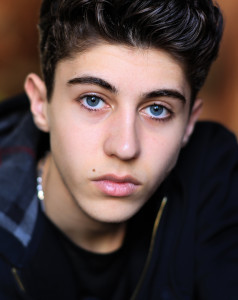 The two of us discuss the significance of incorporating art into Mills life but more importantly, the significance of it being graffiti which Gregory explains can be interpreted in different ways. “I think for Mills, what it was for him was one, he was an adrenaline junkie, he wanted something that gave him adrenaline. But number two, the most important thing, it was his way of expressing himself. He didn’t have a way of expressing himself so the art was what really helped him—it was his coping mechanism for abuse and the evil he dealt with at home. So that was his way out. And I think it’s really important,” he says.
The two of us discuss the significance of incorporating art into Mills life but more importantly, the significance of it being graffiti which Gregory explains can be interpreted in different ways. “I think for Mills, what it was for him was one, he was an adrenaline junkie, he wanted something that gave him adrenaline. But number two, the most important thing, it was his way of expressing himself. He didn’t have a way of expressing himself so the art was what really helped him—it was his coping mechanism for abuse and the evil he dealt with at home. So that was his way out. And I think it’s really important,” he says.
For Gregory, his art outlet is acting, although similar to Mills, he’s also had an interest in visual art. “I actually used to go to this painting class when I was younger. But I’ve always loved to sketch. I used to have a little sketchbook and when I was bored in class, I’d be sketching things out. The teachers would kind of get mad at me but it was like my coping mechanism,” he laughs.
Aside from Quest, Gregory has also had guest roles in NCIS: New Orleans, The Middle, and Hawaii Five-O. Thinking about dream roles, he’d be up for anything but points out that a long-term goal for him would be a Dicaprio-esque drama/thriller. “I would say for instance like Leonardo Dicaprio in Blood Diamond but I don’t think a writer would write role like that for me at my age. So, realistically, for my age right now, I would love to be in Stranger Things season 3. That’d be really cool,” he says sharing that originally he auditioned for the role of Mike Wheeler in the pilot when it was originally called Montauk.
When auditioning for the pilot, Gregory admits that he had no idea that the show would be as successful as it became, but knew there was definitely something about it, “I had no clue. I mean, I obviously worked as hard as I would on like a multimillion-dollar budget huge film but I actually did a self-taped for that one. I didn’t get to go in. I think everyone did a self-taped for that one, I was watching the cast audition tapes. But I absolutely had no clue it was going to be Stranger Things.”
But in the meantime, Gregory has a couple things in the work that he couldn’t share details about for confidentiality reasons that he’s excited about. “I’m looking forward to 2018. I think it’s going to be a really good year,” he says as we finish up our phone call. “2017 had its ups and downs but I think 2018 is going to be my breakout year.”
~~~
You can stay up to date on all things Gregory Kasyan by following his Instagram account.
You can stay up to date on all things Quest by following their Facebook, Instagram, and Twitter accounts.
(photo cred: Anthony Topman)
If you are being abused, please call 1800 4-A-Child (or 1800-422-4453)

